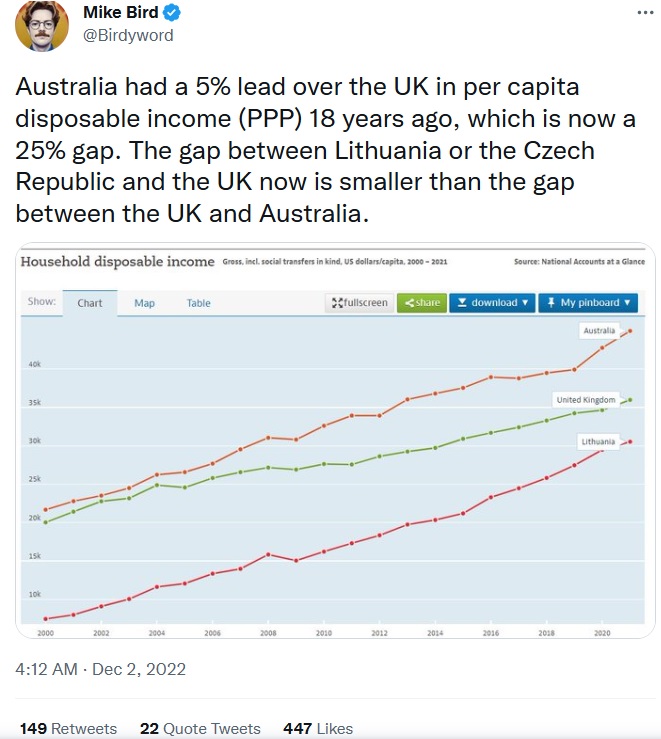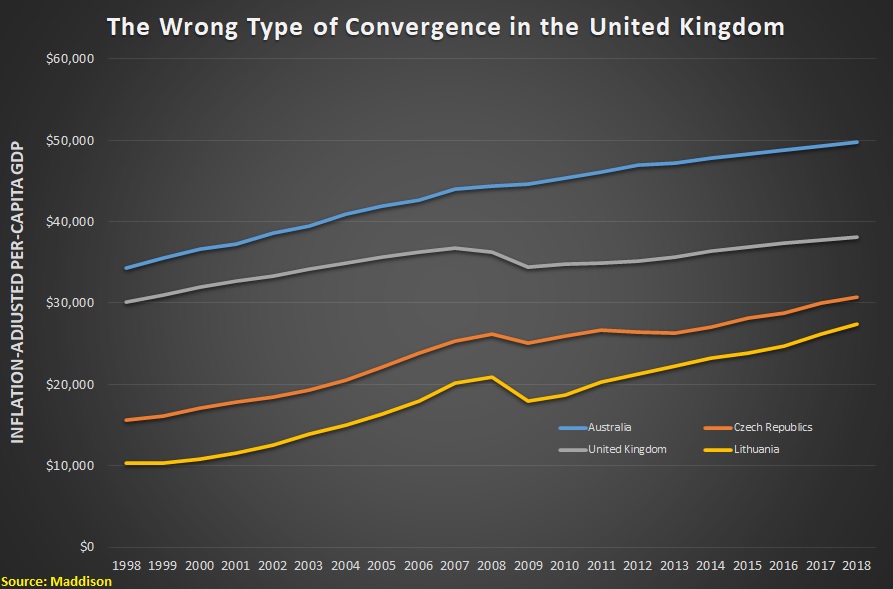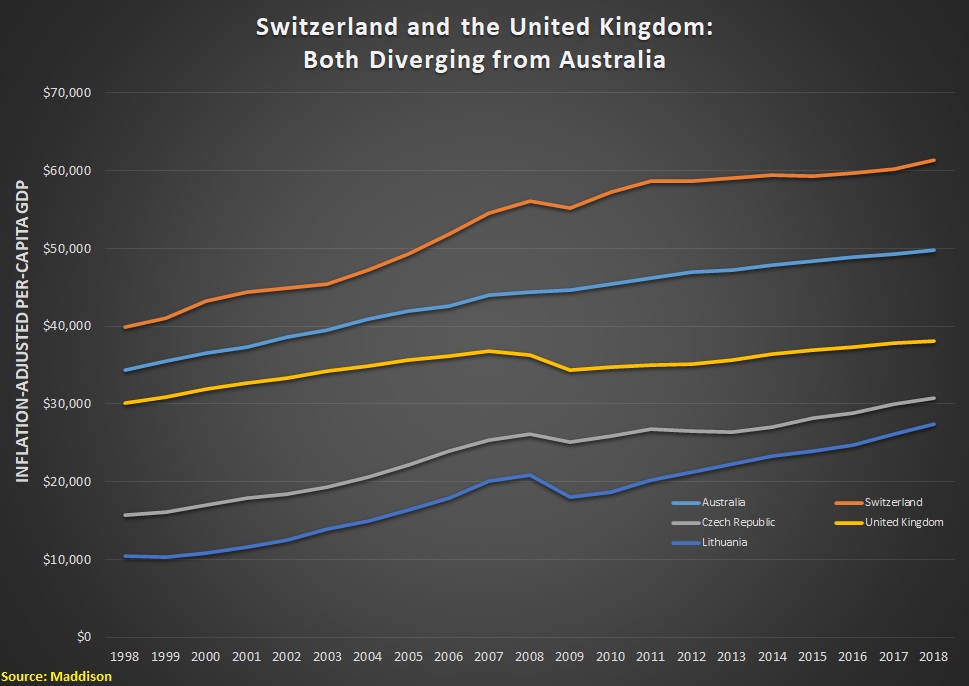I’m a big believer in looking at long-run trends, particularly whether countries are experiencing convergence of divergence with regards to per-capita economic output.
Poor nations normally should grow faster than rich nations, so we can learn a lot when we see exceptions to this rule based on several decades of data.
- Why does/did South Korea out-perform North Korea?
- Why does/did Chile out-perform Venezuela?
- Why does/did the United States out-perform Western Europe?
- Why does/did West Germany out-perform East Germany?
- Why does/did Hong Kong out-perform Cuba?
- Why does/did Taiwan out-perform China?
I think the answer to these questions is obvious, for what it’s worth.
Today, let’s consider another example. Mike Bird of the U.K.-based Economist tweeted about how the United Kingdom is diverging from Australia.

Since Australia and the United Kingdom have similar levels of economic liberty, some people speculate the divergence we’re seeing has a lot to do with regional economic performance.
That makes some sense. Many of Australia’s trading partners are fast-growing nations in East Asia. More specifically, those countries have been buying a lot of of natural resources from Australian producers.
The United Kingdom, by contrast, has a lot of trade with Europe’s slow-growing nations.
The above chart is based on household disposable income.
So I decided to also check the Maddison database to see whether there were similar changes to per-capita GDP.
The charts don’t match exactly, but the trends are similar (I added the Czech Republic since it was mentioned in the tweet).

So is this the end of the story?
Not exactly. My next step was to add Switzerland to see whether trade with Europe dooms a nation to divergence.
Lo and behold, it is diverging with Australia, but in a positive way. It’s getting comparatively richer over time, just the opposite of what we see in the United Kingdom.

So maybe the real lesson is that there’s more prosperity – and the right kind of divergence – in nations with greater levels of economic liberty.
And Switzerland surely is a good role model for policy.
I’ll close with a couple of caveats. The level of economic liberty is important, but it does not tell us everything. Likewise, the level of growth in neighboring nations is important, but it does not tell us everything. Moreover, I normally like looking at four or five decades of data rather than just 20 years.
All that being said, I’m definitely not optimistic about the long-run outlook in the United Kingdom.
———
Image credit: David Iliff | CC BY-SA 3.0.

